For the last three nights, I’ve been staying at Portland, Oregon’s Northwest Hostel, which is one of two Hostelling International hostels in this city. The hostel consists of two historic buildings, one containing the reception, kitchen and rooms, and the other containing a second kitchen and more rooms, often reserved for groups.
This hostel is the only one of the two that is located within easy walking distance of Portland’s main attractions – as its name suggests, it is in Portland’s north-west quarter, and it is only three blocks from the “free rail zone” – the area where all rail-based public transport in Portland is free. Theoretically, it is possible to get from Portland’s Amtrak and Greyhound stations to the hostel for free, only using the MAX light-rail and the streetcar, but it’s not really a direct path, and it’s probably easier just walking for fifteen minutes, unless your luggage is particularly heavy.
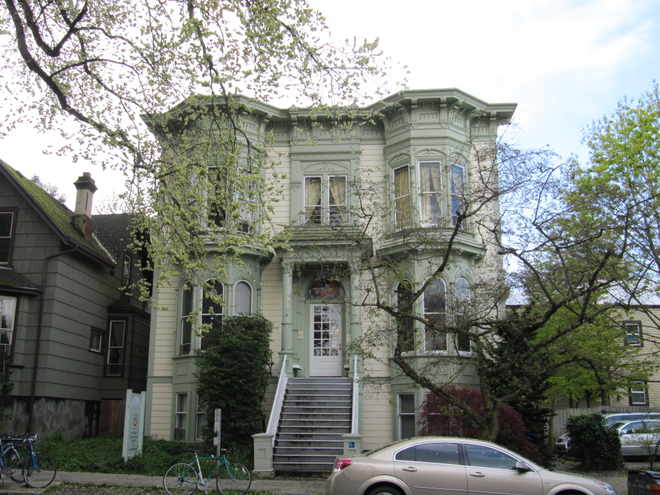
The hostel’s website notes that it has dormitories ranging from 4-bed and 6-bed rooms through to 8-bed rooms, however it doesn’t mention that these rooms are not necessarily isolated from one another. In my case, while my room was an 8-bed room, it was separated from another 8-bed room by a couple of curtains, so effectively I was staying in a 16-bed room. Personally, I prefer to stay in 4-bed dorms, but unfortunately, the Hostelling International USA website doesn’t give you any ability to specify this when you book.
The beds – all bunks – were fairly sturdy, and didn’t rock too much when climbing in, so there’s less chance of being woken up when the person above you arrives in the middle of the night. Bedclothes are provided by the hostel – basically a pillowcase and a folded-up YHA-style sleeping sheet – and there were extra blankets available in a trunk in the hallway.
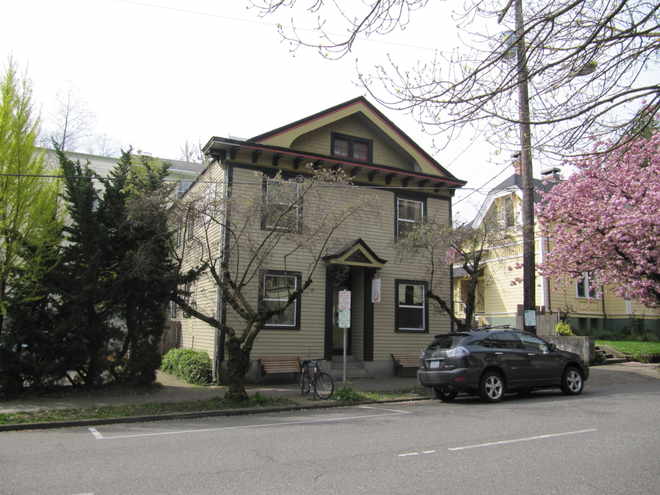
My room had free lockers, with a clip for attaching your own padlock, although the reception also had padlocks available if guests required them. There were also plenty of lockers available outside the rooms, again all free. I can’t understate just how great it is to have free lockers; while obviously it’s no guarantee of security, it’s nice to be able to leave your valuables behind for a little while and not have to lug them around with you all day. Hostels that insist on providing only pay-per-use lockers – or none at all – should really look at this and learn.
Other than that, the rooms were fairly typical for a hostel. One minor annoyance was that towel hooks were located on the bed. Admittedly, it was nice to have hooks (I’ve stayed in some cheap hostels that don’t have any at all), but it would be better for them to be located on the walls, away from where you can smell them.
The bathrooms were fairly drab, as one would expect from such an old building, but they were very clean. The showers were of the bath/shower combination variety, which might present problems for people with mobility issues, and while the water was always hot, the shower-head in one bathroom was missing, and it fired a fairly narrow stream of water at the occupant.
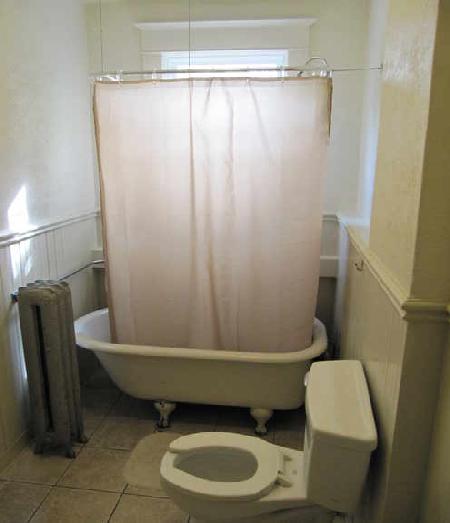
My dormitory had its own ensuite bathroom, and there were two others located out in the hall, one upstairs and one downstairs. I suspect the hostel could probably do with a few more of them, as there were times when they were all occupied.
Each building has a small kitchen, with a refrigerator where guests could store perishable food, however there wasn’t much storage space for non-chilled food. Cooking equipment consisted of an oven, a four-plate stove and a microwave, with a fairly complete set of utensils. Not quite like the industrial kitchens of various hostels in other counties (such as New Zealand, for example) but certainly workable. I’m not sure how well it would cope if the hostel was full, though.
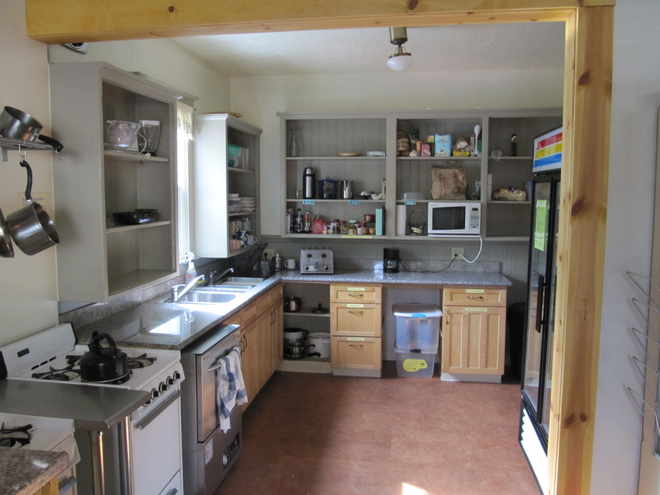
Also, simple things like washing-up brushes were missing, meaning that guests had to clean their dishes with a sponge – this doesn’t strike me as a particularly good way to clean.
The hostel had plenty of common areas, from the dining rooms attached to each of the kitchens to a comfortable, although dark, ground floor lounge in the second building. There didn’t appear to be a TV room anywhere, although given the quality of American TV, this was probably a blessing.
There is free wifi covering every room, and the speeds were good, although it did drop out a few times. There’s also a large selection of board games available, plus a good range of travel books and also a book-swap collection.
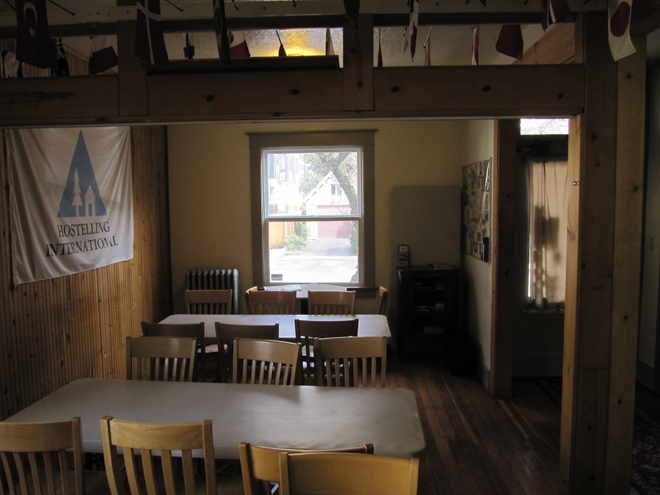
Each building has a laundry, with one washing machine and one tumble-drier – I suspect in busy periods, this would be insufficient. Only one of the buildings had a rack where clothes could be hung out to dry.
The staff were all incredibly friendly and helpful, and upon arrival, they would take each guest through the hostel, showing them the various facilities, before taking them to their room. They also provided advice about Portland’s sights and nightlife, and were more than happy to print out my onward Amtrak ticket (naturally, for a fee).
In all, this would have to be one of the most comfortable hostels I’ve stayed in so far, but this is tempered by the fact that it wasn’t high-season and the hostel was half-empty. In more crowded periods, I do wonder if the small kitchens, low number of washing machines and lack of bathrooms might make the place a bit cramped.



Recent Comments